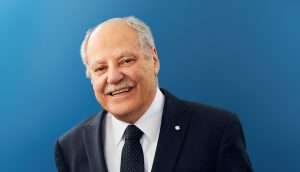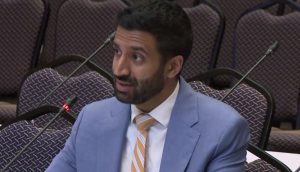Colleen DeCourcy, chief digital officer for TBWA/Worldwide, left the 150 top ad industry execs attending the ICA’s Future Flash two-day think tank with something meaty to ponder on their journeys home yesterday besides their box lunches: the notion of advertising at the speed of culture.
DeCourcy is a digital maven: she was previously VP/CCO for Organic and at the start of her career held the post of director of creative strategy at ICE in Toronto, and prior to her current remit, she was chief experience officer for JWT. Professing that she’s somewhat tired of talking about digital, she observed that agencies are ‘more willing to talk about digital than to make the changes we need to get there.’ Then proceeded to share a model for achieving the ‘there’ in question: a place where traditional branding expertise melds with digital prowess to achieve the desired new ‘ad expressions.’
Her learnings follow the new conventional wisdom up to a point, such as ‘don’t hunt down target groups’ as that’s not relevant any more, and engage your audience, keeping in mind ‘the how and the where are as important as the what.’ Her thoughts as to what that means for agencies includes the increasingly heard ‘need to own the conversation, not just the creative’ advice, which she says entails creating new ad expressions to engage the audience.
Describing the dizzying proliferation of platforms, content and speed, DeCourcy says it’s all about thousands of micro-interactions, and ‘that’s why we’re all feeling a little crazy.’
‘What are we supposed to be doing?’ DeCourcy asked the audience, answering her query with, ‘we think it’s about constant communication.’ And if you’re wondering what constant communication is, that’s a fleet of ongoing small initiatives with a technology infrastructure at its base, helmed by unified project management, and the end game is content and interaction. As per DeCourcy, ‘experience design is the new campaign.’
DeCourcy, who chaired the 2008 Cannes Lions Cyber jury, cited last year’s winner, Uniqlock, a real-time widget for a Japanese fashion retailer, as an example of getting it right. She described it as great companion product design – one that’s functional on many fronts, as it touts new threads and tells time.
‘In this economy we need to do more with our investments,’ says DeCourcy, who advocates arming brands with ongoing conversation points, not ads. ‘Constant communication is our catalyst to change. It’s like exercise for all of us; it changes the model of delivery to creating nimble movement.’ And that means every month, every day or even more often.
To get there, DeCourcy points out that media platforms have to start to change, and agencies have to get acquainted with a 365-day pace, describing the thought-shift as moving from a campaign to a newsroom mentality. Her bywords for the constant communication model mindset are ‘planned, anticipated, reactive.’
When TBWA’s 50-person Amsterdam-based unit Riot used the process on Adidas, the planning function consisted of a huge calendar of the year, including all brand-relevant dates for sports and other events. Color-coded Post-its festooned the calendar, each containing planned, anticipated and reactive comments that spanned key days and dates, culminating in quick-response executions that incorporate news-driven elements.
DeCourcy says advertising at the speed of culture is a mix of planning and improv. ‘It’s a minute-by-minute world,’ and when your advertising and your audience aren’t in sync, ‘utility and enablement are the only lasting impressions.’
‘You still need to have a brand, you still need to have craft,’ says DeCourcy, explaining that by putting the tech together, TBWA is showing they can make their own media. But you need a balance, she adds, anticipating a divide of how people will work at agencies: some will be moving quickly on the constant communication grid, and some will be moving slowly – crafting stories.
Summing up, DeCourcy told the Future Flash attendees ‘as the marketplace shifts, so should your expectations of your agency.’ To be in the right place at the right time, DeCourcy says agencies need to make some shifts: from heavily resourced to highly resourceful, from executing a plan to capitalizing on the unplanned, from defender of the brand to deliverer of the behaviour and from creative as king to the end of ‘the king.’























